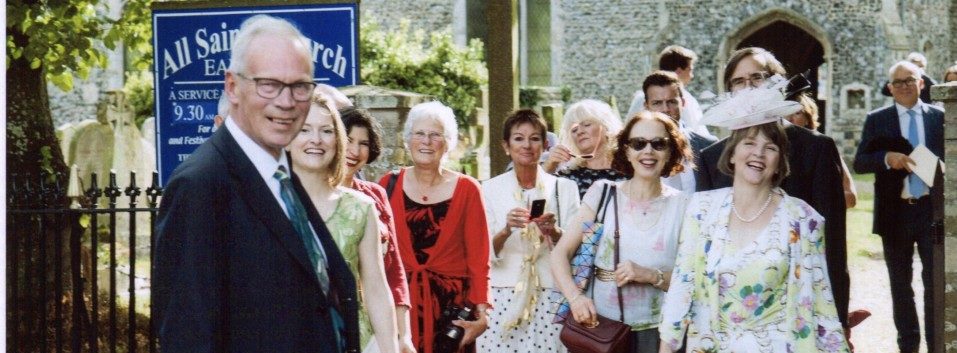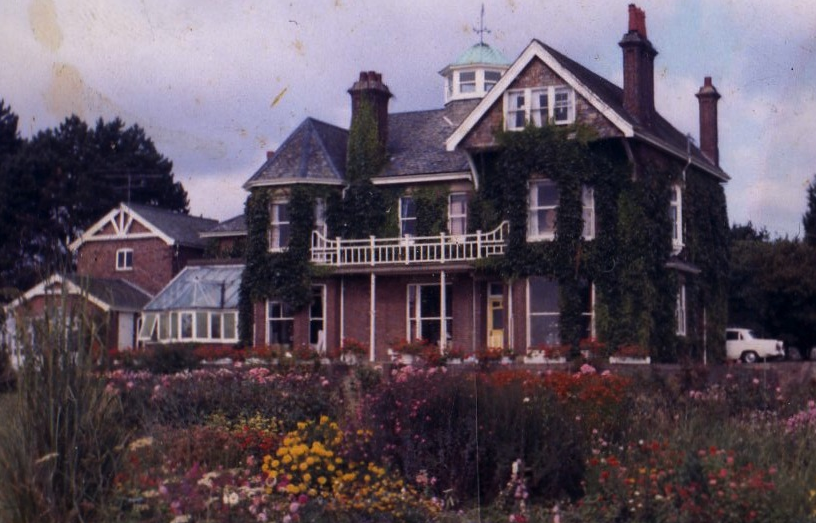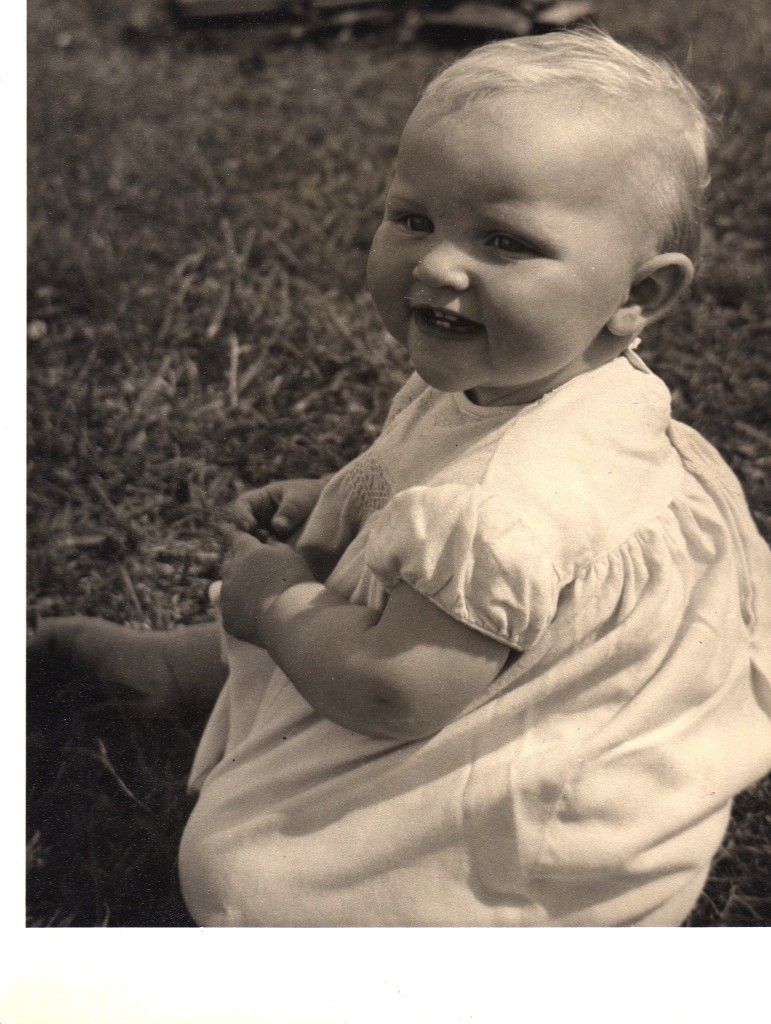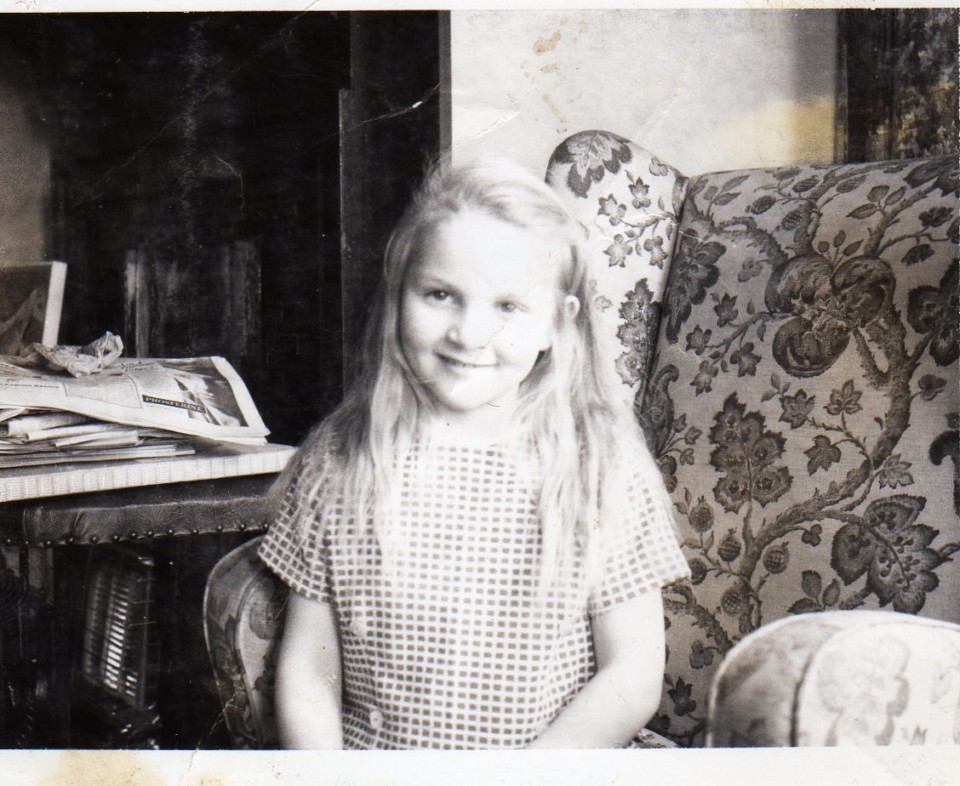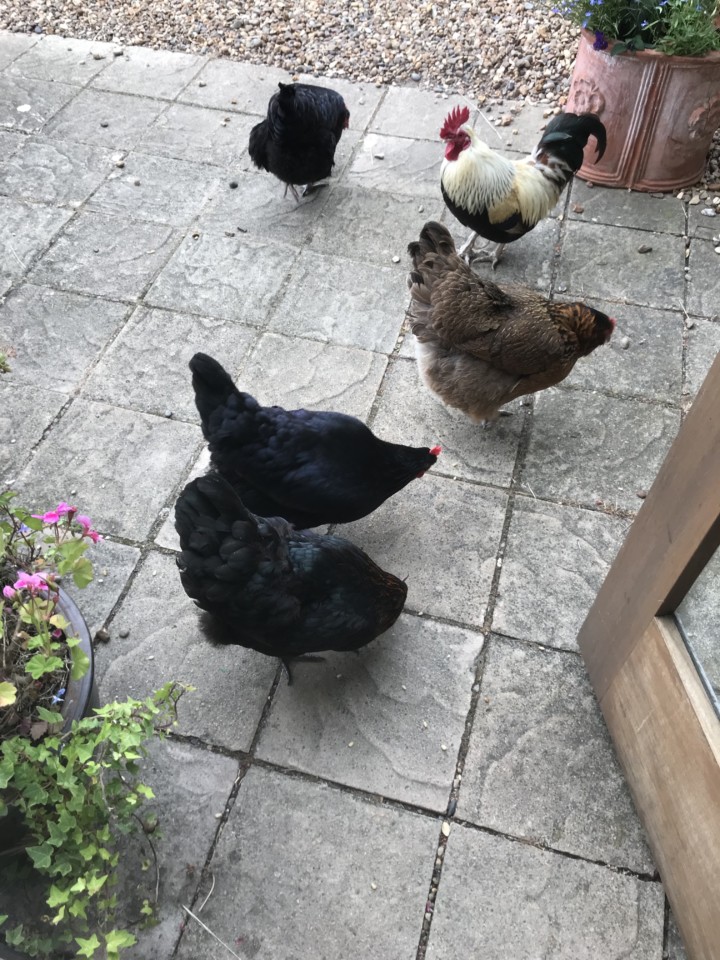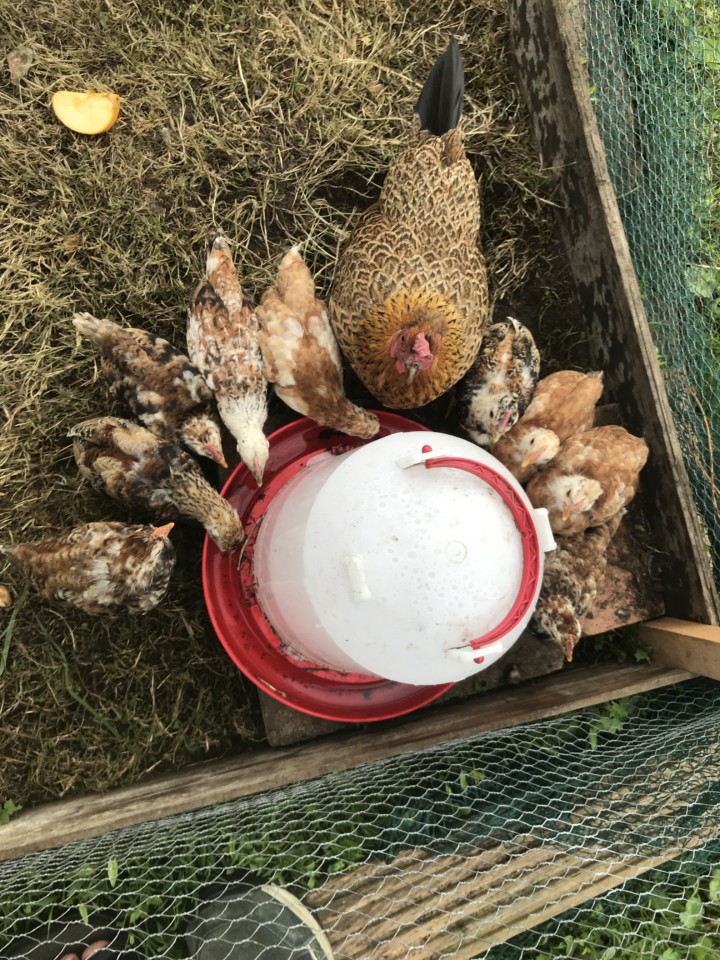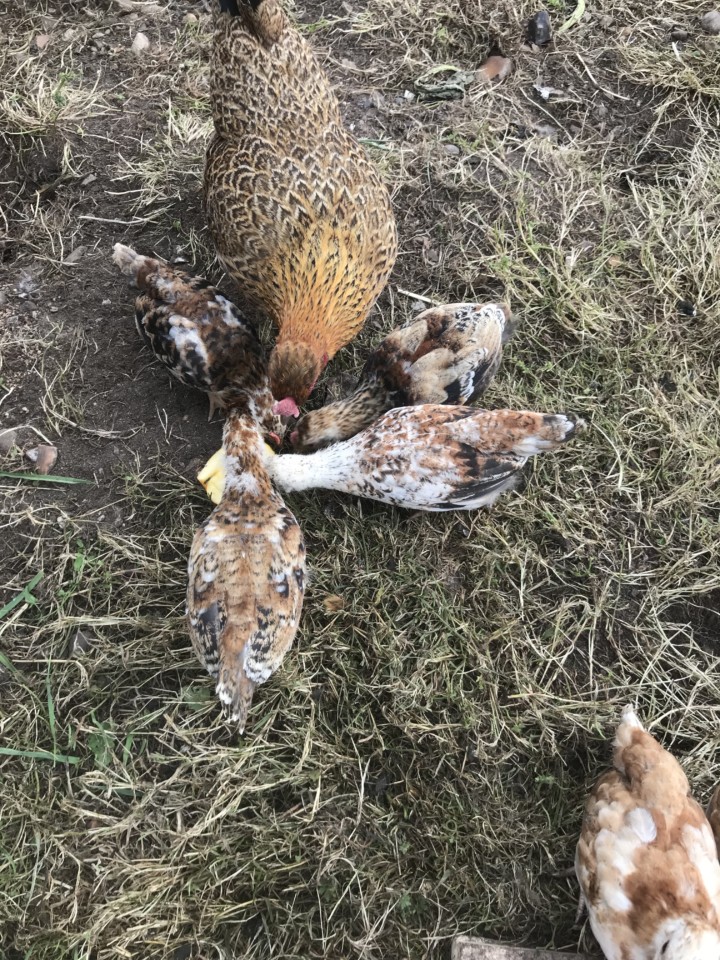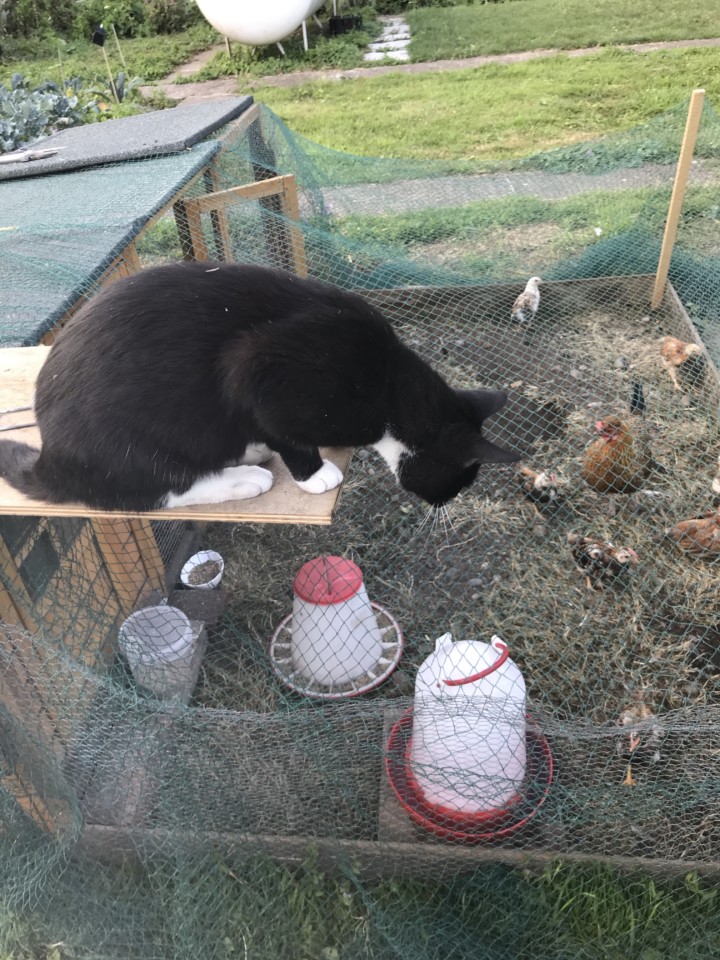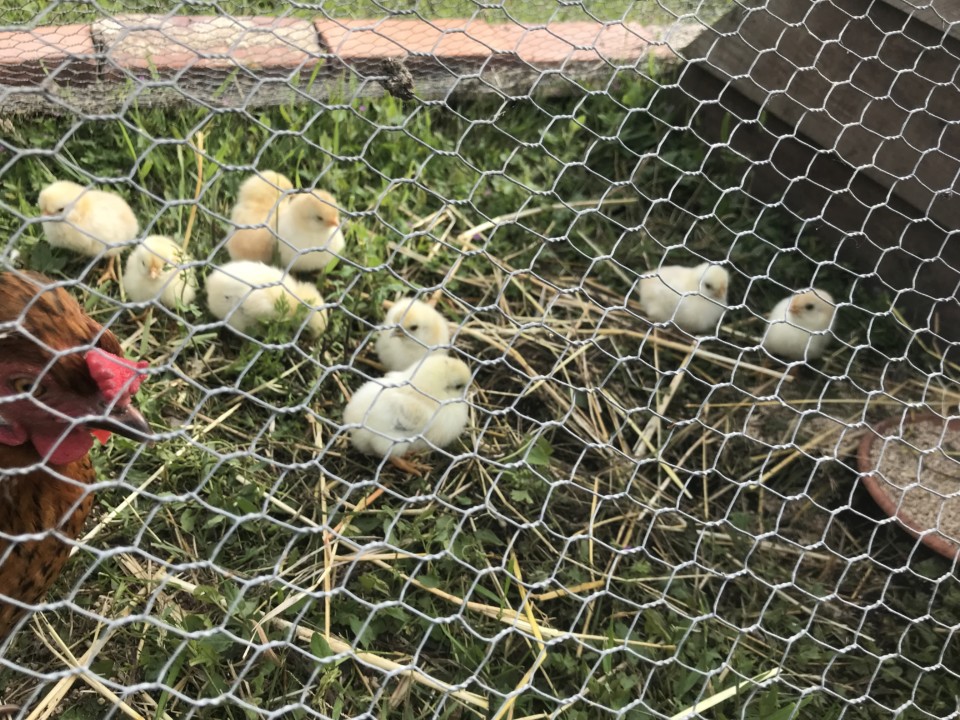As mentioned, the second post of the day, because I’ll be unlikely to write anything for the next few days.
I mentioned that Rose has been in Trinidad, visiting her brother and family and she arrived home again yesterday evening. I didn’t bother her with the news while she was away, but briefly filled her in while she was on the coach back to Norwich.
So, now she knows that Scrabble is sitting and that the eggs may hatch any time from Thursday onwards. Canasta’s eggs took nearly four weeks to hatch, but nearer three is more likely. I’ve left everything ready, in case it happens while we’re away. Tonight, we’re at Tim’s house in Reading, and are off to Pembrokeshire in the morning.
Other news is sadder, because one of the big black hens died the other night. She’s been getting gradually more withdrawn for quite some time, spending a lot of time on her own and, whilst the three black sisters used to lay an egg each almost every day, there have been few for the last few months. I don’t know much about non-bantam chickens, but I suspect that the sort of hens that produce a lot of eggs have shorter lives. As they were given to me, I don’t know how old they are, anyway. But in any case, she had gone from being the leader of the three to the quietest and, for the last couple of nights of her life, I’d picked her up and put her to roost. And then, the other morning, I found her lying on the floor.
I spent a couple of days writing the information for the auction catalogue and we did all the photography and labelling over the weekend. Now i have to crop the photos and then LT will put the catalogue together. Since the weekend, I’ve had two people wanting to put more china in the auction and had to turn them down. I’ve got 109 lots already, which is a few more than I really wanted. But there are lovely pieces. I’ve fallen for the adorable, and very functional, eye bath, but I won’t bid for it. I have too much stuff already … though it’s tempting.
Tim and I were talking about the nature of collecting and the impulse, even obsession, to do so. He just doesn’t get it at all and I don’t really, though I have more comprehension of it than he does. Russell, like his mother, was a born collector and never happier than looking out for something to add. Neither of them was obsessive though, which does seem to take it beyond pleasure.
In other news, my foot is getting better but I still have to wear the boot. It’s been quite uncomfortable while the weather is hot, but at least I can take it off and am very glad I’m not in a plaster cast.
No wifi now until next Monday. But, as I have brought my computer with me, I can get on with these photos without being tempted by the internet.
